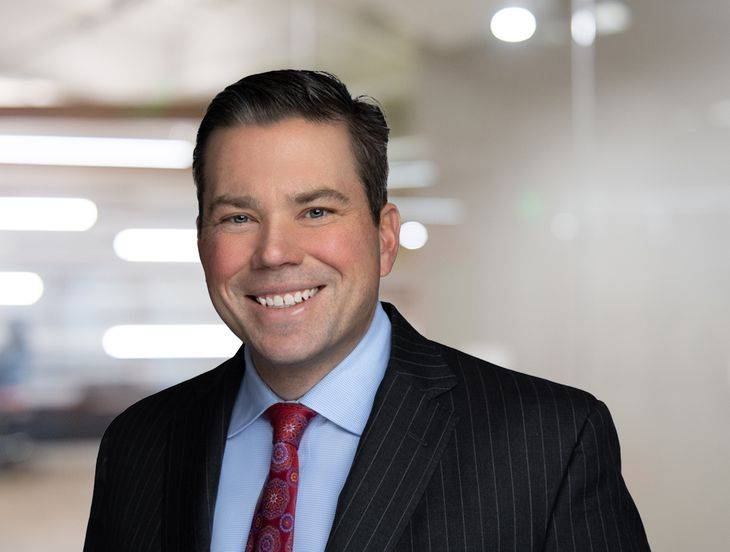Employers Still Need to Follow NLRB’s Strict Handbook Rules – For Now
What You Need to Know About Current Standard and When it Might Change
Insights
5.20.25
With a new presidential administration now in place, many employers are hopeful that the National Labor Relations Board (NLRB) will return to more employer-friendly policies – especially those related to handbook policies. However, policy shifts at the Board take time, and any efforts to roll back Biden-era case law shaping this workplace standard will not happen overnight. Despite this year’s political shift, the Stericycle standard – which creates a stringent test for evaluating the legality of workplace rules – is still being applied by Administrative Law Judges (ALJ) across industries. Unfortunately for employers, recent rulings show that the doctrine likely won’t be narrowed in the immediate future absent direct action by a new Board. Until that happens, what does your company need to know about this problematic standard?
Recap: What Is the Stericycle Standard?
In its August 2023 Stericycle, Inc. decision, the Board:
- Overruled the more employer-friendly Boeing Co. standard (We wrote about the Boeing standard and our predictions here);
- Adopted a new framework for evaluating facially neutral workplace rules and policies;
- Declared that rules are presumptively unlawful if a reasonable employee could interpret them as chilling protected concerted activity under Section 7 of the NLRA; and
- Placed the burden on employers to prove that any rule found presumptively unlawful is narrowly tailored to advance a legitimate and substantial business interest.
This stricter approach has created uncertainty for employers. Many policies that employers would consider rather typical, including those addressing workplace conduct or social media use, may now be presumed unlawful unless clearly and specifically justified.
|
Key Takeaway: The Stericycle standard remains a high bar for employers. Any rule that could potentially be read to discourage protected concerted activity may be struck down unless the employer can prove it is necessary and narrowly written. Employers should continue reviewing and updating workplace policies with this framework in mind. |
Recent Decisions Applying Stericycle
Who helps shape and interpret how Stericycle applies in the real world? ALJs play a central role in defining what the standard means for employers. After a Complaint is issued alleging unfair labor practices, an ALJ conducts a hearing, reviews the evidence, and issues a decision with findings of fact and conclusions of law. While those decisions can be appealed to the Board, they often serve as the first and most practical interpretation of evolving Board precedent.
Recent ALJ decisions across industries show that Stericycle is not a relic of the prior Board. It remains the law of the land, and employers cannot afford to ignore it. The following rulings reaffirm that ALJs continue to apply Stericycle as binding precedent when evaluating the legality of workplace rules and policies.
- Case: University Hospitals Cleveland Medical Center (JD–75–24) (12/2/24)
- Location: Cleveland, Ohio
- What happened: A hospital maintained two work rules at issue: one restricting residents from joining any organization that might strike, and another barring residents from sharing “any information relative to the Hospital” with the press.
- ALJ finding: Applying Stericycle, the ALJ found both rules facially unlawful because they would reasonably chill employees from engaging in protected concerted activity. The ALJ rejected the hospital’s argument that patient privacy or ethical concerns justified the rules, and noted that even if Boeing still applied, the outcome would likely be the same.
- Key point: The ALJ applied Stericycle as the governing standard, emphasizing its retroactive application and higher burden for employers.
- Case: Amazon.com Services LLC (JD–09–25) 2/12/25
- Location: Swedesboro, New Jersey
- What happened: Multiple union and worker groups challenged the employer’s Unpaid Time Off (UPT) policy after the company automatically deducted time for absences due to protected walkouts.
- ALJ finding: The judge held that while the UPT policy was facially neutral and lawful under both Stericycle and Boeing, its application violated Sections 8(a)(1) and 8(a)(3). Specifically, the employer unlawfully failed to restore UPT hours deducted for strike activity and assessed attendance points despite knowing the absences were protected.
- Key point: Even though the ALJ referenced Boeing, Stericycle was applied as the governing standard. This illustrates that ALJs may acknowledge prior precedent, but Stericycle still controls and imposes the more stringent burden on employers.
- Case: Bookholders, LLC (JD–27–25) (3/31/25)
- Location: Blacksburg, Virginia
- What happened: The employer maintained a mandatory arbitration agreement and a rule requiring employees to obtain approval before joining or creating any social media groups amongst co-workers.
- ALJ finding: Both the arbitration agreement and the social media rule were found presumptively unlawful. The judge applied Stericycle and noted the policies would also be unlawful even under the older, more lenient Boeing standard.
- Key point: This case underlines that Stericycle is not just replacing Boeing but setting a higher bar, which is one that many policies cannot clear, even those that may have survived pre-2023 scrutiny.
|
Key Takeaway: ALJs are applying Stericycle across a wide range of cases and contexts, from confidentiality and civility rules to separation agreements and post-employment restrictions. The standard's reach is broad, and no category of employer policy is automatically safe from scrutiny. |
What This Means for Employers
You should continue to:
- Review and revise employee handbooks, confidentiality policies, and separation agreements to match the strict Stericycle standard.
- Evaluate whether any work rule could reasonably be interpreted to discourage employees from engaging in protected concerted activity.
- Be cautious about civility, code of conduct, respect, and social media policies.
- Avoid overreliance on savings clauses or disclaimers as these will not cure vague or overbroad language.
- Expect continued enforcement by NLRB Regional Offices and ALJs applying Stericycle until it is expressly overturned.
|
Key Takeaway: Employers should not assume that a more conservative Board will immediately or retroactively shift standards. Don’t let the political shift lull you into inaction. Policy reviews and compliance efforts must continue under the current Stericycle standard until further notice. |
Looking Ahead
Employers might feel hopeful upon learning that President Trump nominated Crystal Carey to serve as the Board’s General Counsel. If confirmed, Carey would play a key role in shaping the Board’s enforcement priorities and legal arguments. But while a future Trump-appointed NLRB may eventually overturn or revise Stericycle, any changes will take time. For now, these decisions summarized above remain intact and continue to shape labor law, due to a lack of quorum at the Board. As of now:
- There has been no decision overruling Stericycle.
- The standard is being enforced retroactively.
- Employers must remain vigilant in assessing policies through the lens of the current Stericycle framework.
Until a new standard is formally adopted, assume Stericycle is here to stay. Continue monitoring ALJ decisions and NLRB developments closely and consult with counsel before implementing or enforcing workplace rules that could implicate employee rights under the NLRA.
Conclusion
Make sure you are subscribed to Fisher Phillips’ Insight System to get the most up-to-date information direct to your inbox. For further information, contact your Fisher Phillips attorney, the authors of this Insight, or any member of our Labor Relations group.
Related People
-
- Brian Balonick
- Regional Managing Partner
-
- Molly Mullen
- Associate

